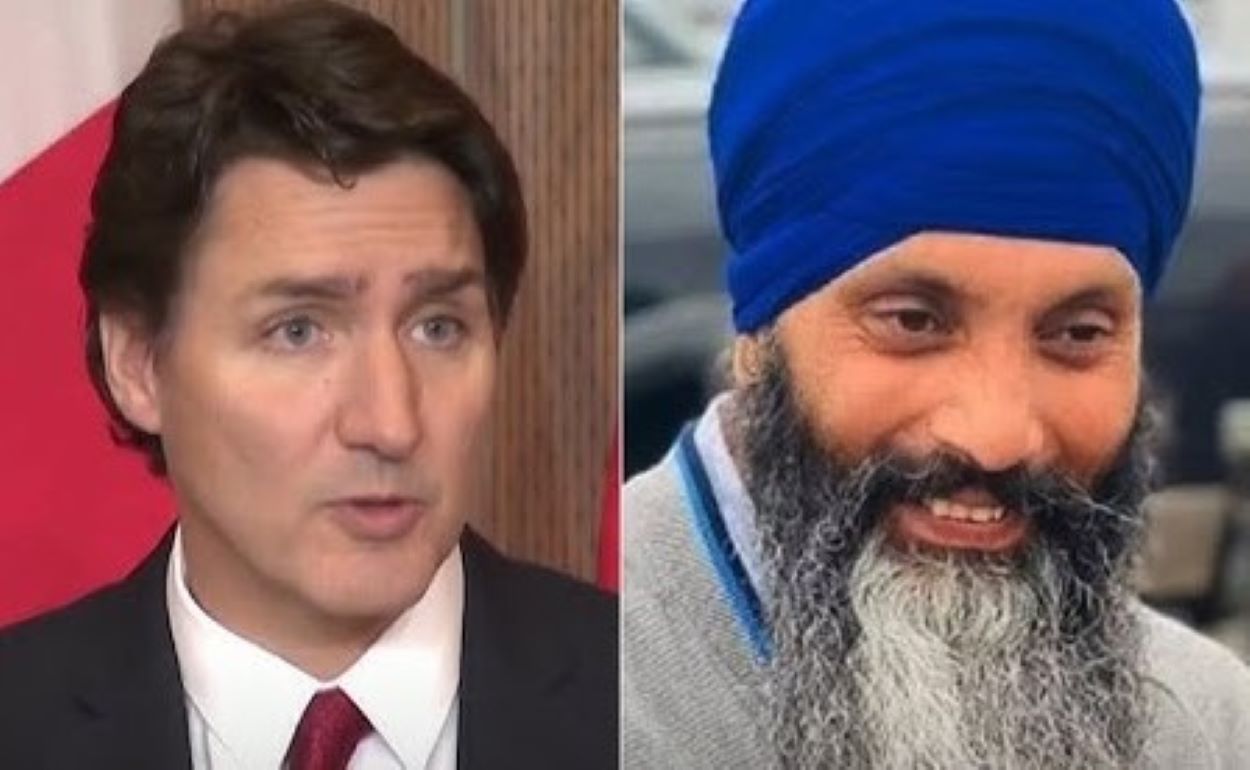Canada’s Prime Minister Justin Trudeau has announced the expulsion of six Indian diplomats, including the high commissioner, citing New Delhi’s failure to cooperate in criminal investigations connected to allegations involving the murder of a Sikh separatist leader in Canada and other activities against Indian dissidents on Canadian soil.
During a Tuesday press briefing, Trudeau elaborated that the decision followed India’s non-cooperation with RCMP investigations into incidents of violence and intimidation attributed to agents of the Indian government. “We have clear and compelling evidence that agents of the Indian government have engaged in activities threatening our public safety,” Trudeau stated.
He highlighted that these activities included clandestine surveillance, coercion, and involvement in violent acts such as murder. “This is unacceptable,” Trudeau emphasized.
The Prime Minister criticized the Indian government’s approach, accusing it of endorsing criminal activities in Canada, including murder and extortion. The backdrop for these expulsions includes a broader accusation by Canadian authorities that Indian intelligence has been involved in over a dozen threatening incidents in Canada.
India responded by recalling its envoy and other diplomats from Canada, dismissing Canada’s claims as part of Trudeau’s domestic political strategy to appease certain voter bases. India also ordered the expulsion of six senior Canadian diplomats, including the acting high commissioner, signalling a severe diplomatic rift between the two nations.
This dispute marks a significant deterioration in relations, which had already been strained since Trudeau last year claimed to have evidence of Indian involvement in the assassination of Hardeep Singh Nijjar on Canadian soil.
The Royal Canadian Mounted Police have also accused the Indian government of conducting a widespread campaign against Indian dissidents in Canada, involving homicides, extortion, and interference in democratic processes.
Canada’s foreign ministry stated that the decision to expel the diplomats was based on substantial evidence linking them to these criminal activities, particularly the Najjar case.
Canada’s foreign minister, Melanie Joly, mentioned that the government had requested India to lift diplomatic immunity from the accused diplomats so that Canadian authorities could question them. Since India did not comply, Canada proceeded with the expulsions.
“We’re not seeking a diplomatic confrontation with India,” Joly said. “However, we cannot ignore the activities threatening Canadians.”
This incident has escalated tensions, potentially impacting diplomatic relations between Canada and India for a long time as both countries navigate their positions on the global stage amid broader geopolitical shifts.






